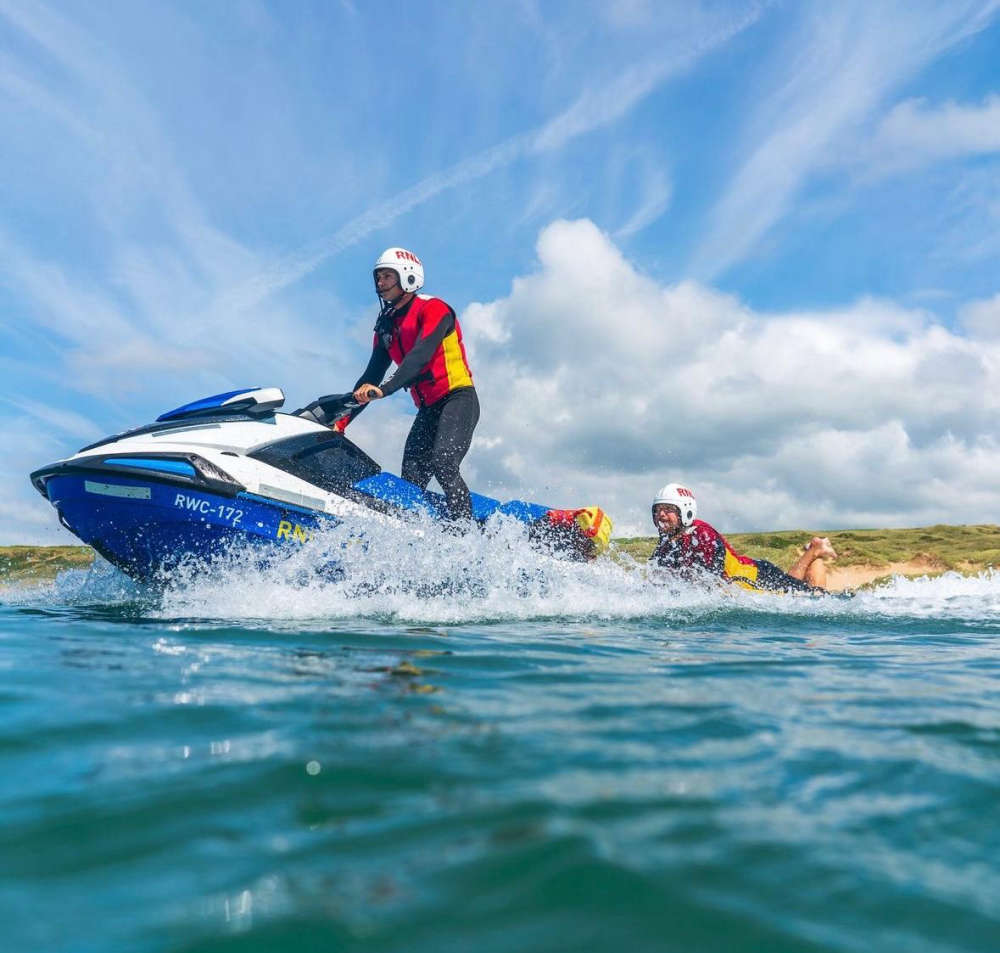
The RNLI is offering safety advice to beachgoers during the winter after lifeguards ended their patrols at four beaches in the Vale.
Sunday marked the end of the peak season for lifeguards based at Whitmore Bay in Barry Island, which have been held since Easter.
RNLI teams have also been patrolling the beaches at Southerndown, Llantwit Major and Ogmore-by-Sea since the end of June.
Only one Welsh beach - Whitesands Beach in Pembrokeshire will continue to be patrolled at weekends up until the October half term break.
But the RNLI is reminding visitors to the coast during autumn and winter that harsher conditions that can pose great risk - with bigger waves and stronger winds increasing the likelihood and strength of rip currents.
Chris Cousens, RNLI Water Safety Lead for Wales and the West, said: "As the season finishes for RNLI lifeguards in Wales, we’re asking people to continue to take care and be aware of the dangers."
"If you visit a beach outside of the lifeguard season, never go alone. It’s vital that you have company who could get help in the event of an emergency. Take note of safety signage at the entrance to the beach which will warn of the local risks and hazards, and if possibly speak to someone local who might be able to provide advice."
"Always check the weather conditions and tide times and consider your capabilities, if in doubt it is better to stay dry and watch the sea than take the risk."
"Always carry a means of contact such as a mobile phone, if you get into trouble or see anyone else in difficulty call 999 and ask for the Coastguard."
"We’re aware that cold water dipping is becoming increasingly popular. We strongly advise that you should never do this alone. As we get further into the winter months and the temperature continues to drop, the risk of cold-water shock will increase. Make sure you do not stay in the water for a prolonged period, and that you have means of warming up afterwards."
"If you get into trouble in the water, Float to Live. Tilt your head back with ears submerged and try to relax and control your breathing. Use your hands to help you stay afloat and then call for help or swim to safety if you can."




 Work to start on Cowbridge retirement scheme
Work to start on Cowbridge retirement scheme
 Vale line closes for engineering works
Vale line closes for engineering works
 Freedom of the Vale for RNLI volunteers
Freedom of the Vale for RNLI volunteers
 Senedd moving out of Siambr
Senedd moving out of Siambr
 Norovirus: hospital pressure 'exceptional'
Norovirus: hospital pressure 'exceptional'
 Morgan grilled over £4.8bn benefit cuts
Morgan grilled over £4.8bn benefit cuts
 Barry Bike Club to return
Barry Bike Club to return
 St David bravery award for Penarth lifesaver
St David bravery award for Penarth lifesaver
 Ruth Jones honoured with St David Award
Ruth Jones honoured with St David Award
 Plans for ‘crumbling’ Senedd offices face scrutiny
Plans for ‘crumbling’ Senedd offices face scrutiny
 Work to start on new Vale campuses
Work to start on new Vale campuses
 Barry Company launches world's first edible soap
Barry Company launches world's first edible soap
 First Minister visits Barry Makerspace
First Minister visits Barry Makerspace
 Council's housing waiting list grows again
Council's housing waiting list grows again
 Cardiff Airport's chief exeuctive quits
Cardiff Airport's chief exeuctive quits
 Norovirus: hospital visitor ban extended
Norovirus: hospital visitor ban extended
 Littering on the increase, charity warns
Littering on the increase, charity warns
 Hot Chicks – 'powerfully performed yet disappointingly stereotypical'
Hot Chicks – 'powerfully performed yet disappointingly stereotypical'





